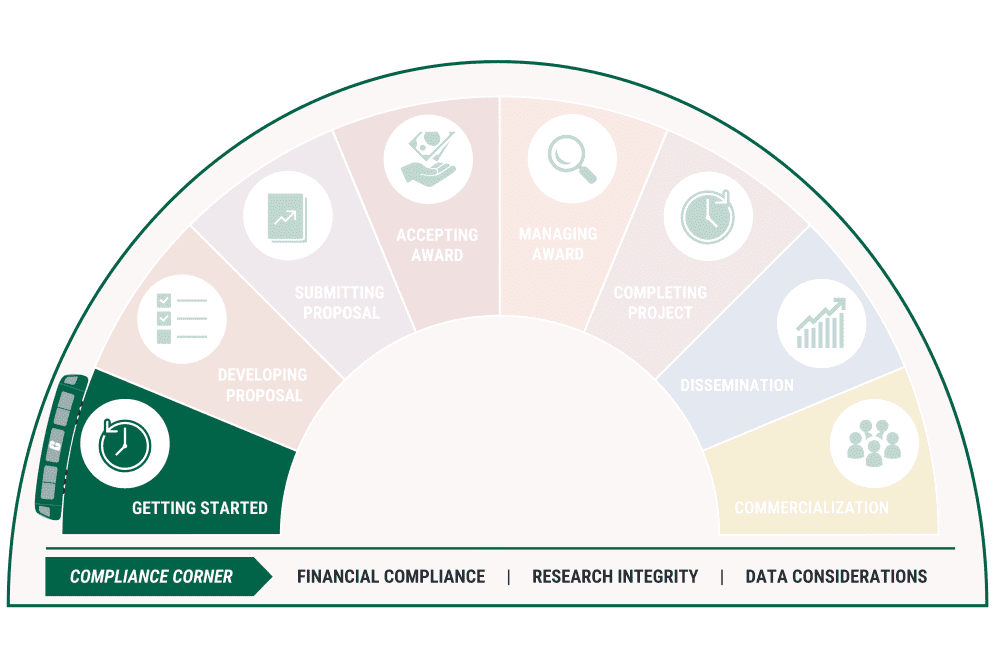Ignite Planning Grants
Ignite Planning Grants promote new collaborative research efforts and facilitate the development of interdisciplinary teams focused on preparing competitive, large-scale collaborative proposals for significant external funding. Ignite planning grants are intended to enhance existing areas of excellence, accelerate the development of emerging research strengths, and foster interactions between UNC Charlotte faculty and potential collaborators at other institutions. The program aims to lower and eliminate barriers to building collaborative teams and coordinating, planning, and preparing large, interdisciplinary multi-investigator research proposals by providing funds to (1) convene conferences and meetings, (2) coordinate workshops, (3) support travel costs for potential collaborators from other institutions, (4) hire grant-writing consultants and content specialists, and (5) conduct other proposal-development and team-development activities.
Request for Proposals is now closed.
Deadline: tba
Research and Economic Development sponsors the Ignite Planning Grant Program which aims to promote new collaborative research efforts and facilitate the development of interdisciplinary teams focused on preparing competitive, large-scale collaborative proposals for significant external funding.
Ignite grants seek to enhance existing areas of excellence, accelerate the development of emerging strengths, and foster interactions between UNC Charlotte faculty and potential collaborators at other institutions. In an effort to eliminate barriers to building collaborative teams and coordinating, planning, and preparing large, interdisciplinary multi-investigator research proposals, Ignite provides funds to:
- Convene conferences and meetings
- Coordinate workshops
- Support travel costs for potential collaborators from other institutions
- Hire grant-writing consultants and content specialists
- Conduct other proposal-development and team-development activities.
Ignite grants are designed to support and incentivize stronger collaborative relationships among researchers from different colleges and disciplines with the goal of increasing UNC Charlotte’s competitiveness in attracting extramural funding and research support, especially in the areas of focus and distinction identified in the Top-tier Research Commission Report. Recipients of these one-time awards are expected to submit multiple applications and proposals for significant funding from diverse sources within the 24-month award period, thereby helping to position these teams of researchers to obtain the external funding needed to sustain future activities and research related to the project.
Award Focus and Scope
Ignite awards are intended to build capacity in research areas that are strategically important at regional, state, and national levels. While the Ignite program is open to all fields, of particular interest are proposals that focus on one or more of the areas of research focus and distinction identified by the Top-Tier Research Commission.
Regardless of the research theme or focus, proposers must fully describe how their research aligns with priority areas identified by state and federal agencies and policy offices (e.g., National Science Foundation’s Strategic Plan, NIH Strategic Plan, Office of Science and Technology Policy Priorities, and National Endowment for the Humanities Strategic Plan) and/or national organizations and professional societies.
Award Amount and Duration
Faculty and staff teams can apply for one-time grants of up to $50,000 per year for up to two years (24 months; $100,000 maximum direct costs). Facility and Administrative (F&A) costs are not required. We anticipate funding 4-6 awards annually. The second year of funding will be contingent upon the team’s performance and progress during year 1, including their successful attainment of proposed milestones. Annual reports detailing the activities and progress of the planning efforts will be due 45 days prior to the anniversary date of the project. Extensions are not permitted.
The expected start date for FY2025 awards is TBA.
To promote the success of proposals resulting from Ignite awards, successful teams will be expected to partner with the Center for Research Excellence to prepare and submit proposals through the Center’s Complex, Large, Interdisciplinary Proposal Preparation (CLIPP) program.
Who Can Serve as PI?
Full-time, tenured/tenure-track faculty at UNC Charlotte are eligible to serve as principal investigators (PI) on Ignite proposals. UNC Charlotte faculty (tenured/tenure-track, teaching, adjunct, and/or research faculty), instructors, post-docs, and staff, as well as faculty and researchers from other institutions, are eligible to serve as senior personnel. There is no limit to the number of senior personnel on a project. Only one faculty member can serve as PI and an individual faculty may only serve as PI on one proposal or active award. However, individuals may participate as senior personnel on up to three (3) proposals and/or awards.
How Do I Apply?
The full Request for Proposals (RFP) is available here.
Applications for the 2025 competition are due at TBA.
Questions?
Questions regarding this program announcement should be directed to Dr. LaVerne Ellerbe, Director of the Center for Research Excellence, at lellerb1@uncc.edu.

